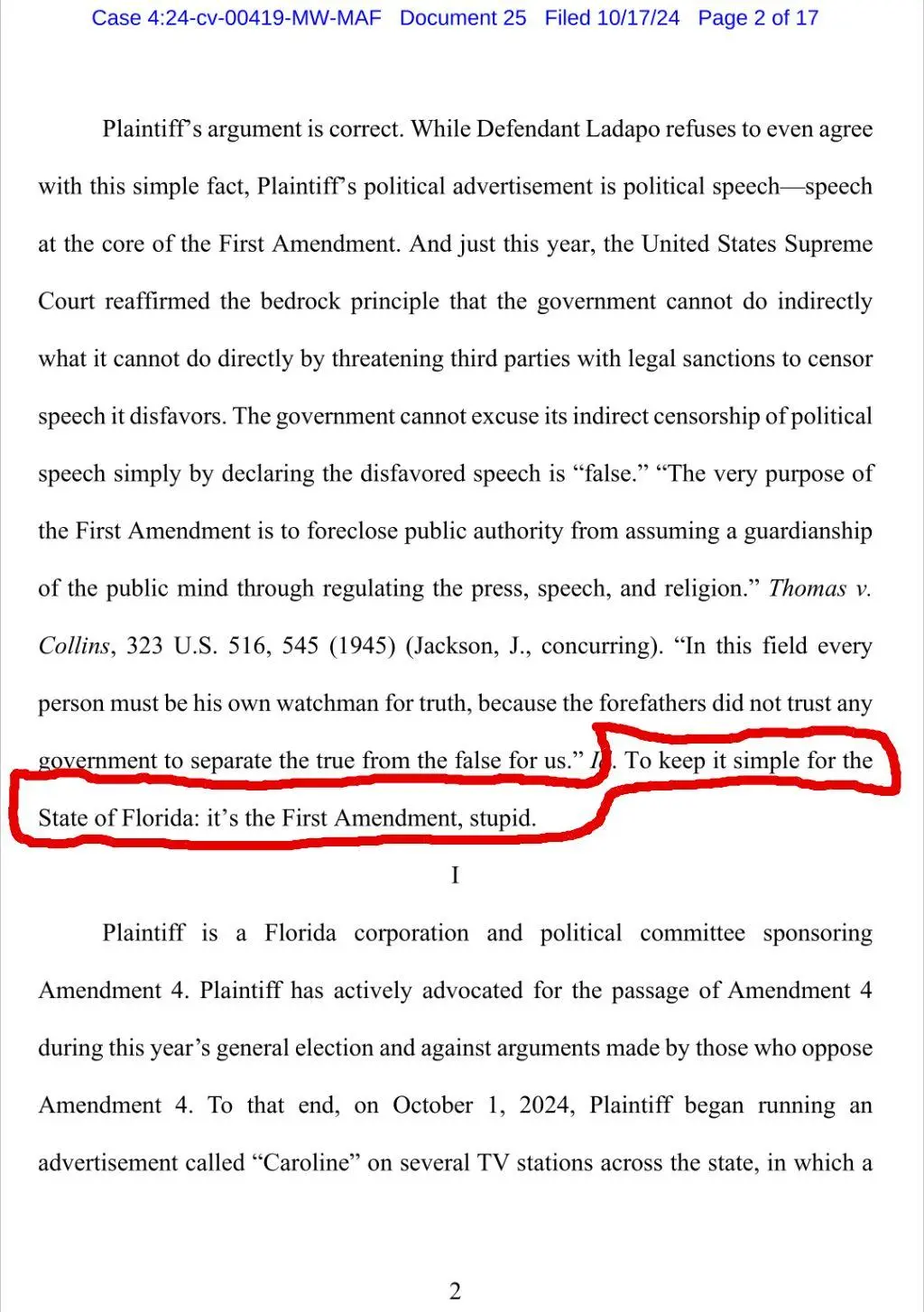- 7 Posts
- 29 Comments

 204·5 days ago
204·5 days agoWell, he’s not wrong technically, but the context feels like it’s obviously missing. We have no Saturn V vehicles anymore, nor can we build them again. Starship might require that many launches to get to TLI, but with reusability, it probably can. Not to mention that the cost will come down a bit. So it can at least do it soon.
I’m sure others have more coherent and thought out rebuttals.

 26·13 days ago
26·13 days agoNow there’s a person who needs a legal fund campaign.

 3·17 days ago
3·17 days ago

 20·19 days ago
20·19 days agoLook to history for some answers.
The Denver Post had a opinion piece that talked about how America has seen something like this before.
The Gilded Age, the tumultuous period between roughly 1870 and 1900, was also a time of rapid technological change, of mass immigration, of spectacular wealth and enormous inequality. The era got its name from a Mark Twain novel: gilded, rather than golden, to signify a thin, shiny surface layer. Below it lay the corruption and greed that engulfed the country after the Civil War.
The era survives in the public imagination through still resonant names, including J.P. Morgan, John Rockefeller, Andrew Carnegie and Cornelius Vanderbilt; through their mansions, which now greet awestruck tourists; and through TV shows with extravagant interiors and lavish gowns. Less well remembered is the brutality that underlay that wealth — the tens of thousands of workers, by some calculations, who lost their lives to industrial accidents, or the bloody repercussions they met when they tried to organize for better working conditions.
Also less well remembered is the intensity of political violence that erupted. The vast inequities of the era fueled political movements that targeted corporate titans, politicians, judges and others for violence. In 1892, an anarchist tried to assassinate industrialist Henry Clay Frick after a drawn-out conflict between Pinkerton security guards and workers. In 1901, an anarchist sympathizer assassinated President William McKinley. And so on.
As historian Jon Grinspan wrote about the years between 1865 and 1915, “the nation experienced one impeachment, two presidential elections ‘won’ by the loser of the popular vote and three presidential assassinations.” And neither political party, he added, seemed “capable of tackling the systemic issues disrupting Americans’ lives.” No, not an identical situation, but the description does resonate with how a great many people feel about the direction of the country today.
It’s not hard to see how, during the Gilded Age, armed political resistance could find many eager recruits and even more numerous sympathetic observers. And it’s not hard to imagine how the United States could enter another such cycle.

 23·26 days ago
23·26 days agoBottom line
Several days ago, a woman managed to board a Delta Boeing 767 from New York to Paris without a ticket. The crew eventually became suspicious, when they noticed her repeatedly moving between lavatories.
The Russian national with a US Green Card requested asylum upon landing in Paris, and it wasn’t her first time making such a request. She was ultimately denied, and a few days later, was put on a Delta flight back to the United States.
Unfortunately that wasn’t so straightforward, since she had an outburst on the return flight, and refused to cooperate with the crew. As a result, she was removed from the flight, and remains in French custody.
 71·28 days ago
71·28 days agoActual leftists have no power over anything and are very small in number, that’s why she ran a more conservative campaign in the first place. But, it didn’t work. Despite doing everything in her power to not look like a leftist, everyone still labeled her as a radical leftist because she’s a black woman. That is why she lost.
My initial reaction to reading this was visceral, but in rereading I think you need to expound a bit about who you mean. I do not agree, but I can see why you think that.
What I find more useful and interesting is trying to figure out who it is that didn’t vote and how we can move them from the disenfranchised existence they are in. There are a lot of them, many are urban which means they likely lean left. So a GOTV that actually got even 75% voter turnout out would give the right a stomping.
Why that failed is worth understanding.
Sounds like a good bot.
This is great organizational recommendations.

 7·2 months ago
7·2 months ago“There is every reason to believe China’s BeiDou global navigation satellite system has the ability to imitate American GPS signals and those of Europe’s Galileo,” said Professor Todd Humphreys of the University of Texas Radionavigation Lab…

 2·2 months ago
2·2 months agoGood fill-in on that. i think I’d add some context to each which is worth discussing.
-
Political instability and weak governance are present.
- No, there are some arguably elements, but when you compare to the issues you see in the countries who’ve had them “No” is good a simple distilled answer.
-
There are deep ethnic, religious, or sectarian tensions.
- Yes, with the caveat that we are seeing low level tensions as compared to the direct violent and organic engage issues you might see in Syria, Haiti, Yugoslavia, etc. There is racism with violence and tension, but not at the widespread near genocidal level which are the signs which is considered. I admit this is arguably, but worth discussing as it’s a framing issue about gun violence, police use of force, structural violence, etc.
-
The economy is declining with high inequality.
- Economy: not declining - Inequality: high, this in particular is going to be a hard sign to trip, given how widespread the middle class is in the US vs other examples. It’s just a much much larger base that needs to get squeezed so much more before you’ll likely see French like protests about the wage disparity, corruption, or other inequality challenges. It’s very relevant, but just unlikely to get a significant population to say it’s not fair enough to act on it… When they can still go out to eat, watch movies, have disposable income, and more.
-
Persistent social unrest and widespread protests occur.
- Might happen if Trump loses or steals the presidency, this I’m just going to avoid given the continuing discussion.
-
External powers are interfering or supporting different factions.
- Yes, big time, substantiated from a foreign power stand point. I’d point out that this should also describe multinational companies as much as foreign powers.
-
There is significant resource scarcity and competition.
- Not yet, but global warming might make this happen, agree. Starting to see some changes due to some globalization, pandemic, and your point of climate change.
-
Militarization and proliferation of arms increase.
- Well, it’s the USA, agreed… But we are not seeing this based on strictly ethic lines in a way.
-
Systematic human rights violations and repression take place.
- Might happen under Trump
-
Society experiences strong ideological polarization.
- Yes, I’d caveat this with the reality that although it’s perceived as half the country that is polling well for Trump, it’s closer to a third or less. Not that the ideology divide isn’t pertinent, but just that there are about 80 million people who don’t vote in the US, so voter participation in presidential election is about 60%. So perception is that we have huge divide, but it’s driven by less and more extreme voices then the masses.
-
Demographic pressures such as rapid population growth or urbanization exist.
- No, I would actually argue this might be yes. The housing crunch is driven by a rural to urban migration, which has exacerbated the housing shortage. This in addition to the US being an outlier that has kept it’s population growth rate higher than other developed countries has continued to increase the US population, which is only recently beginning to slow. This is not at the same level as other collapsed countries, but is what gives people the perception that the US is struggling.
-
The rule of law and justice systems are breaking down.
- No, agreed although the judge choices and decisions of late leave much to be desired.
-
Historical grievances and unresolved conflicts resurface.
- No, agreed with the caveat that racial tension are at play and perceptions focus this to include immigrants.
-

 103·2 months ago
103·2 months agoSo I talked to a PhD who’s work covered civil wars across the world, and asked about this. Turns out there are several signs you need to see which makes a civil war more likely. Most of which we haven’t even gotten close to, because many of them are economic related and right now the US is still the single largest economy in the world where peoples standard of living is still very comfortable.
I asked ChatGPT to describe this and these are the highlights, in order of historical priority?
- Political instability and weak governance are present.
- There are deep ethnic, religious, or sectarian tensions.
- The economy is declining with high inequality.
- Persistent social unrest and widespread protests occur.
- External powers are interfering or supporting different factions.
- There is significant resource scarcity and competition.
- Militarization and proliferation of arms increase.
- Systematic human rights violations and repression take place.
- Society experiences strong ideological polarization.
- Demographic pressures such as rapid population growth or urbanization exist.
- The rule of law and justice systems are breaking down.
- Historical grievances and unresolved conflicts resurface.
Note that the US does have some of these, but not to the evident level that you saw in Rwanda, Sudan, Yugoslavia, Syria, Burundi, Eritrea, Somalia, Libya, Myanmar, Haiti, and others. In short, if you look at the indicators, although the US is indeed troubled, it’s not troubled enough for people to hot the streets with more than riotous intent.
Way to bust that with reality! Kept the fact checks coming!

 1·2 months ago
1·2 months agoReally great explanation! Thanks!

 2·2 months ago
2·2 months agoFor anyone who wants to support their efforts, they have an active paypal..

 2·2 months ago
2·2 months agoIn Ukrainian.
We need a video of this, it’s very meme-able.

 6·2 months ago
6·2 months agoReally good thoughts. And pontoon bridges or other temporary structures have their limitations.
With that said, I don’t really see S. Korea wanting to invade N. Korea. Short of a radical change in leadership.
 2·2 months ago
2·2 months agoThat means the 2026 implementation won’t happen. In fact, the amendment made it possible that Proposition 131 would never go into effect — that is unless the legislature reverses course.
Gov. Jared Polis, a supporter of Proposition 131, nearly vetoed the elections measure, Senate Bill 210 because of the clause, which was added in the final days of the General Assembly’s lawmaking term and first reported publicly by The Sun. He called on lawmakers and clerks to find a way to implement Proposition 131 by 2028 if the measure passes.
“If you ask me right now, at this moment, if I know that 64 counties can implement this, the answer is resoundingly ‘no,’” said Fitzpatrick, who hasn’t taken a formal position on Proposition 131. “And we need to take that seriously.”







…
…